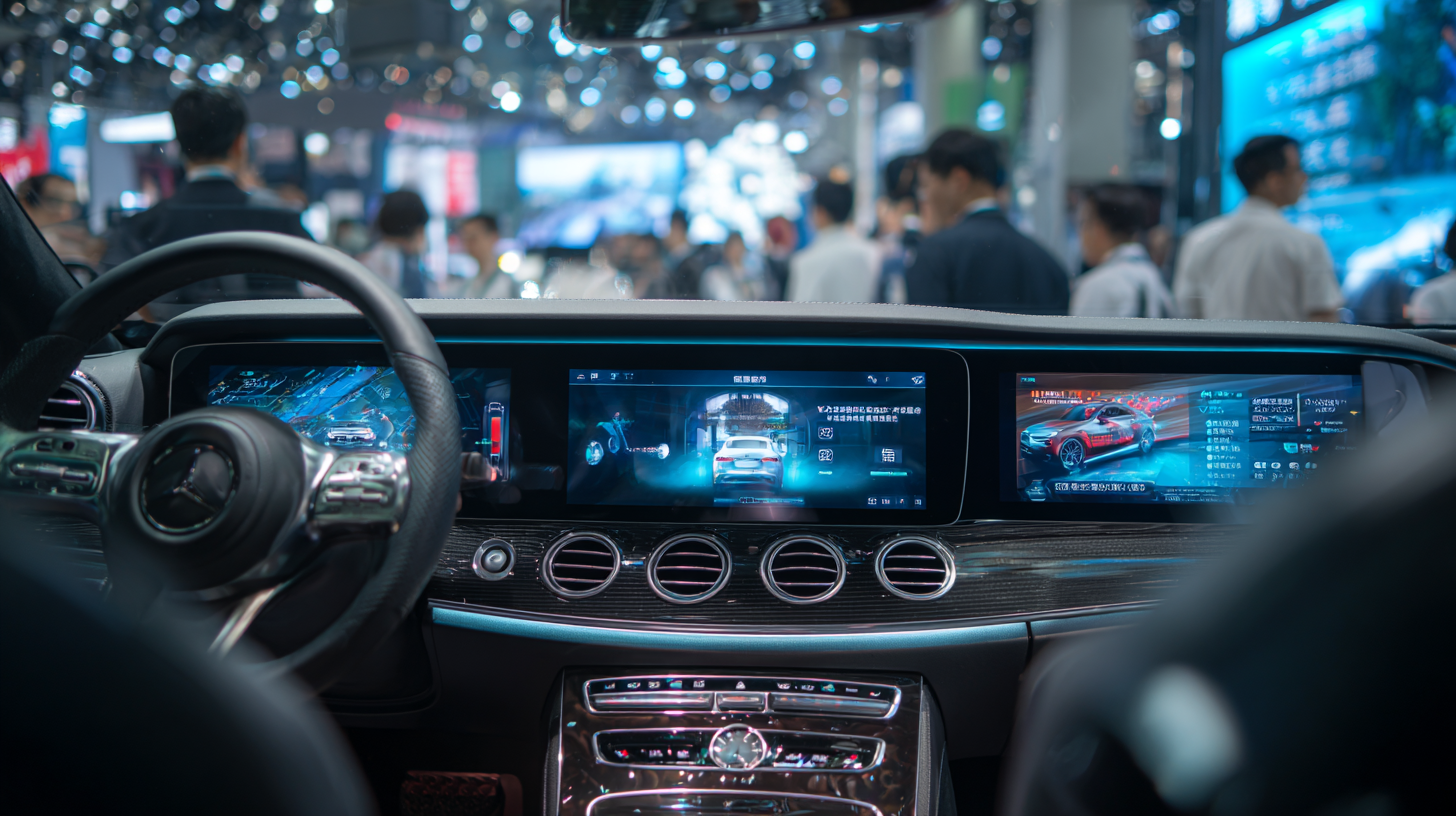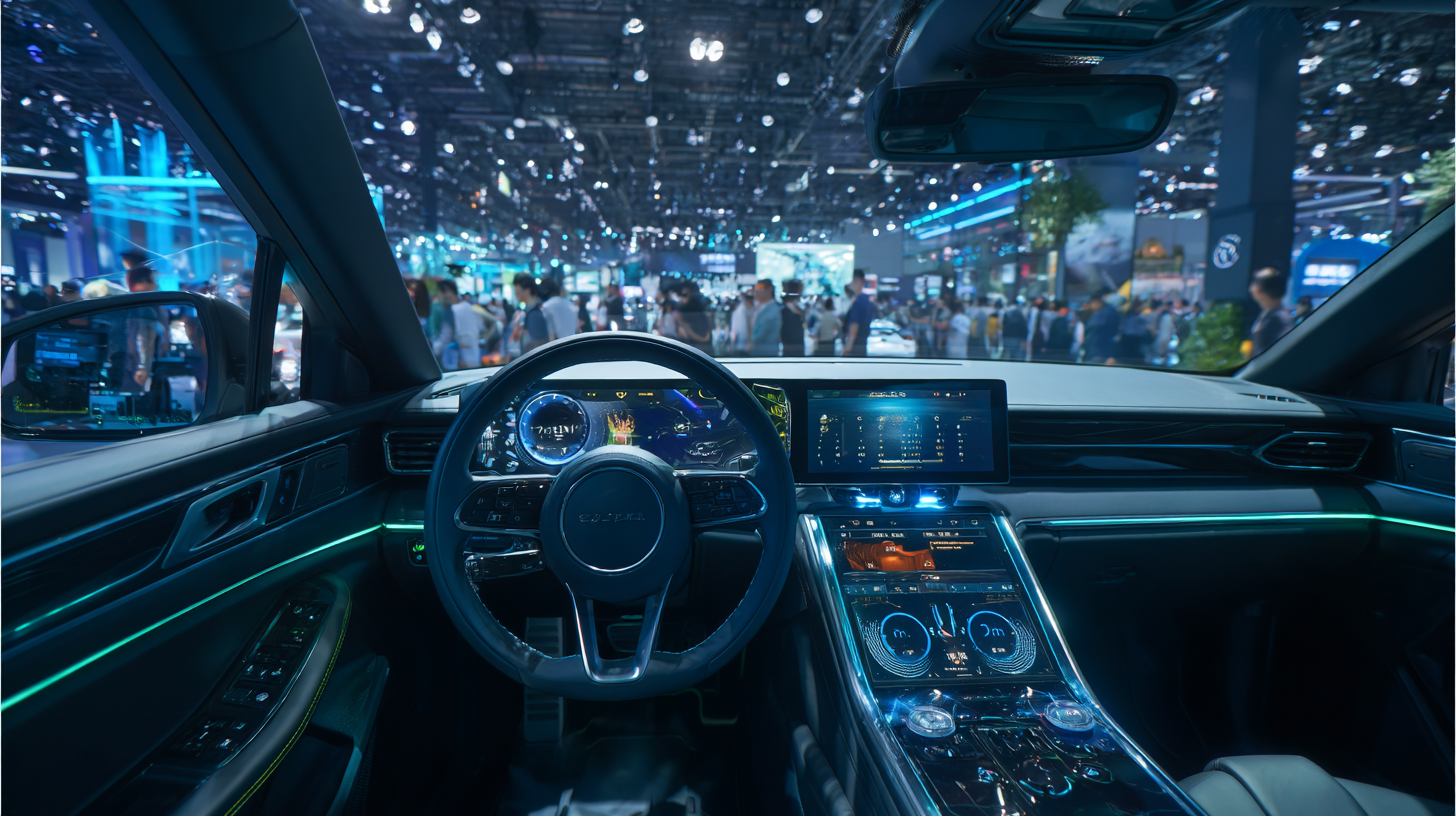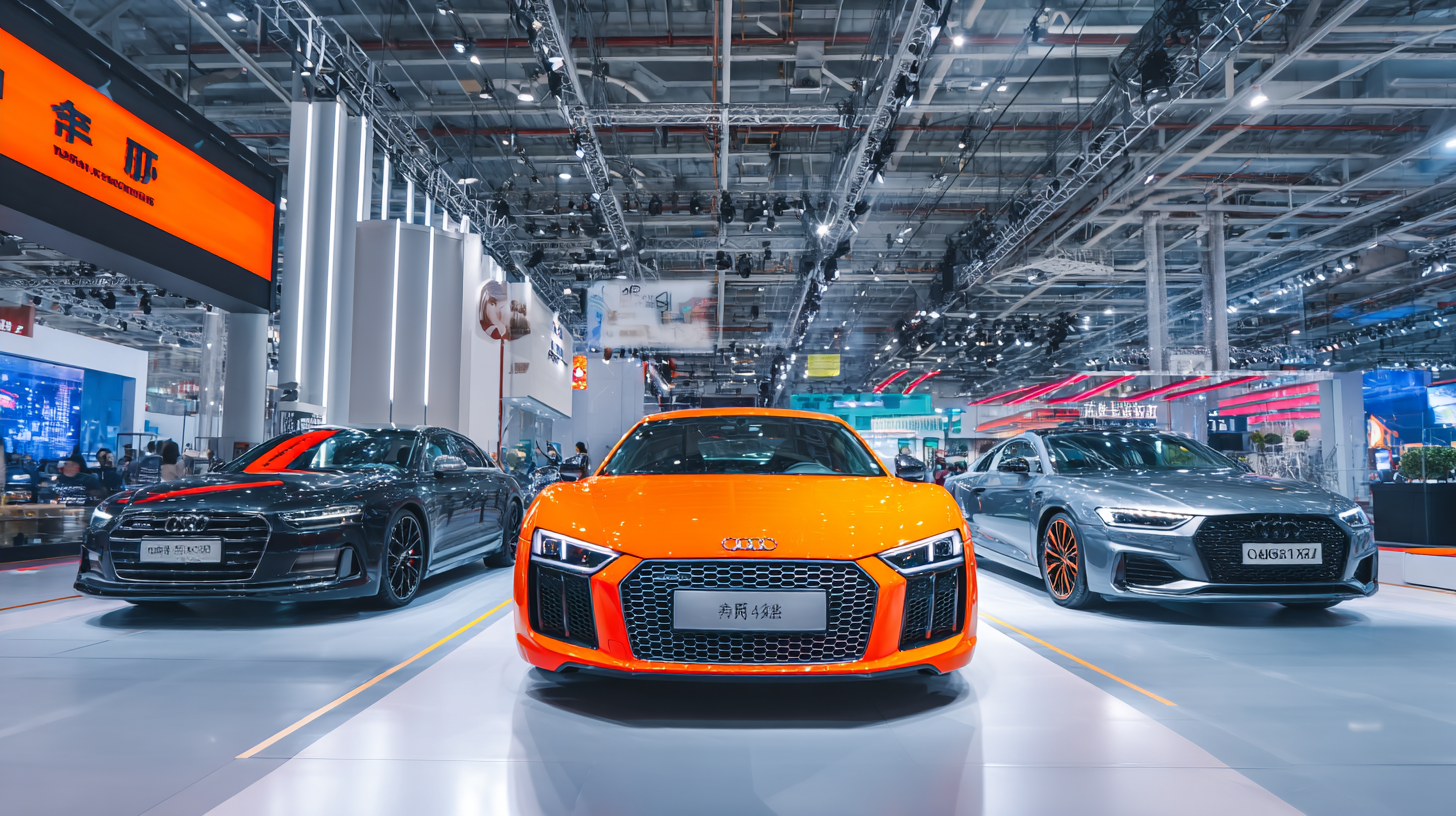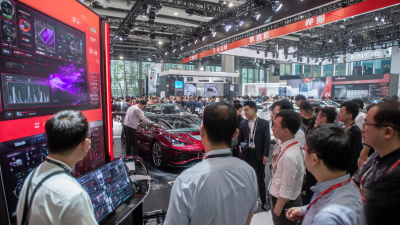Unlocking Opportunities: Car Electronics Trends at the 138th Canton Fair 2025 in China
 The 138th Canton Fair in 2025 serves as a pivotal platform for showcasing the latest innovations in car electronics, a sector that continues to experience rapid growth amid technological advancements and increasing consumer demand. According to a recent industry report by Mordor Intelligence, the global car electronics market is projected to reach over $400 billion by 2025, growing at a compound annual growth rate (CAGR) of 9.2%. This surge is driven by the escalating integration of advanced features such as connectivity, navigation systems, and enhanced safety technologies in vehicles. As automotive manufacturers and suppliers converge at the Fair, they will unveil cutting-edge products and solutions that not only enhance driver experience but also align with evolving regulations on vehicle sustainability. The Canton Fair presents a unique opportunity for stakeholders to connect, collaborate, and explore the transformative trends shaping the future of car electronics.
The 138th Canton Fair in 2025 serves as a pivotal platform for showcasing the latest innovations in car electronics, a sector that continues to experience rapid growth amid technological advancements and increasing consumer demand. According to a recent industry report by Mordor Intelligence, the global car electronics market is projected to reach over $400 billion by 2025, growing at a compound annual growth rate (CAGR) of 9.2%. This surge is driven by the escalating integration of advanced features such as connectivity, navigation systems, and enhanced safety technologies in vehicles. As automotive manufacturers and suppliers converge at the Fair, they will unveil cutting-edge products and solutions that not only enhance driver experience but also align with evolving regulations on vehicle sustainability. The Canton Fair presents a unique opportunity for stakeholders to connect, collaborate, and explore the transformative trends shaping the future of car electronics.
Emerging Technologies in Car Electronics Showcased at the 138th Canton Fair
The 138th Canton Fair in 2025 will be a pivotal event for the car electronics industry, showcasing the latest emerging technologies that promise to reshape the landscape of automotive innovation. With advancements in electric vehicles, autonomous driving, and smart connectivity, this year's fair is anticipated to reveal groundbreaking products that enhance both functionality and user experience. Companies are expected to present solutions such as advanced driver-assistance systems (ADAS), integrated infotainment systems, and enhanced battery management technologies that cater to the evolving demands of consumers and manufacturers alike.

Tips for attendees include networking with industry leaders and exploring collaboration opportunities that can lead to pioneering innovations. Engaging in panel discussions can also provide insights into market trends and consumer needs. Moreover, keeping an eye on startups exhibiting novel ideas can uncover potential investments that align with the future direction of car electronics. By being proactive in these areas, participants can position themselves at the forefront of automotive technology advancements showcased at the fair.
Innovative Trends in Electric Vehicle Accessories and Components
The automotive market is undergoing a significant transformation, with electric vehicle (EV) accessories and components at the forefront of innovation. The surge in EV adoption is driving the development of new technologies and products tailored for this evolving landscape. From advanced battery management systems to smart connectivity solutions, the focus is on enhancing vehicle performance and user experience while promoting sustainability.
With the global auto parts manufacturing market projected to grow from USD 701.57 billion in 2024 to USD 1195.4 billion by 2032, the trend is evident that businesses are eagerly embracing these changes. In jurisdictions like Brazil, the auto parts market is also expected to expand, driven by a robust CAGR of 5.998%. The drive towards sustainability is fostering a new wave of car modifications and innovations, as manufacturers seek to adapt to consumer demands for eco-friendly and high-performance vehicle options. As such, the Canton Fair in 2025 will showcase the latest advancements in car electronics, underscoring the industry's commitment to shaping the future of mobility.
The Role of Smart Connectivity in Modern Car Electronics
The advent of smart connectivity is revolutionizing the car electronics landscape, a trend prominently showcased at the 138th Canton Fair in 2025. As vehicles become more technologically advanced, the integration of smart connectivity features is no longer a luxury but a necessity. According to a report by MarketsandMarkets, the global automotive smart connectivity market is expected to grow from $25 billion in 2023 to over $70 billion by 2028, representing a compound annual growth rate (CAGR) of 20%. This rapid expansion highlights how essential connectivity solutions, such as embedded SIM (eSIM) technology and Vehicle-to-Everything (V2X) communication, are becoming in modern automobiles.
Furthermore, the push towards electric and autonomous vehicles has intensified the need for sophisticated connectivity solutions. A recent study by McKinsey & Company indicates that over 30% of new cars are expected to be connected by 2025, thus enhancing the user experience and enabling features like real-time diagnostics and predictive maintenance. These advancements not only improve driver safety and convenience but also create massive opportunities for car electronics manufacturers at the Canton Fair, fostering partnerships and innovations that could shape the future of the automotive industry. As car electronics continue to evolve, the emphasis on smart connectivity will play a crucial role in driving technology adoption and consumer engagement.
Unlocking Opportunities: Car Electronics Trends at the 138th Canton Fair 2025 in China - The Role of Smart Connectivity in Modern Car Electronics
| Category | Trend Description | Impact on Industry | Future Outlook |
|---|---|---|---|
| Smart Infotainment Systems | Integration of advanced multimedia systems with voice control and AI. | Enhances consumer interaction and driving experience. | Continued innovation in user interfaces and personalization. |
| Connected Vehicle Technology | Vehicles equipped with internet access for real-time data exchange. | Improved vehicle diagnostics and enhanced safety features. | Expansion of V2X communications and autonomous driving capabilities. |
| Electric Vehicle (EV) Charging Solutions | Innovations in fast-charging and smart charging networks. | Supports the growth of the EV market and reduces downtime. | Increased investment in infrastructure development. |
| Advanced Driver Assistance Systems (ADAS) | Systems designed to enhance vehicle safety and ease of driving. | Reduces accidents and promotes safer driving habits. | Development towards fully autonomous vehicles. |
| Cybersecurity in Automotive | Enhancing protection against cyber threats in connected vehicles. | Critical for consumer trust and safety in vehicle technology. | Regulatory standards and improved security protocols. |
Sustainability Initiatives within the Automotive Electronics Sector
The 138th Canton Fair in 2025 serves as a pivotal platform for showcasing the latest trends in car electronics, specifically highlighting significant sustainability initiatives within the automotive electronics sector. As manufacturers increasingly recognize the importance of eco-friendly practices, innovative technologies are being developed to reduce the environmental impact of car electronics. From energy-efficient components to the integration of recycled materials, companies are striving to align their production processes with sustainable principles, thus enhancing their brand image and meeting the growing consumer demand for greener products.
In addition to product innovation, collaborative efforts among industry stakeholders are crucial in advancing sustainability. Leading automotive technology companies are partnering with environmental organizations to establish standards and certifications that promote ethical sourcing and responsible manufacturing. These initiatives not only encourage transparency within the supply chain but also educate consumers about the environmental benefits of choosing sustainable car electronics. By focusing on sustainability at the Canton Fair, industry participants are not only unlocking new business opportunities but also shaping a more responsible and resilient automotive sector for the future.
Market Insights: Growth Opportunities and Challenges in Car Electronics Industry
The car electronics industry is experiencing transformative growth opportunities driven by technological innovations and evolving consumer demands. The 138th Canton Fair 2025 showcased cutting-edge advancements in automotive technology, including smarter infotainment systems, autonomous driving aids, and enhanced connectivity features. These developments not only aim to improve the driving experience but also align with the increasing consumer expectations for convenience and safety. Manufacturers are now focusing on integrating artificial intelligence and IoT capabilities into vehicles, setting the stage for a more interconnected automotive ecosystem.
However, the industry also faces significant challenges. Supply chain disruptions, rising material costs, and stringent regulatory requirements pose hurdles for manufacturers looking to capitalize on emerging opportunities. Additionally, the rapid pace of technological change demands continuous investment in research and development, which could strain resources. Despite these challenges, companies that successfully navigate these complexities stand to gain a competitive advantage in a rapidly evolving market. The insights gained at the Canton Fair will prove invaluable as stakeholders seek to position themselves effectively amid these dynamic trends.

Footer

Hours
| Sunday | CLOSED | |
| Monday | 9AM-12PM | 1PM-6PM |
| Tuesday | 9AM-12PM | 1PM-6PM |
| Wednesday | 9AM-12PM | 1PM-6PM |
| Thursday | CLOSED | |
| Friday | 9AM-12PM | 1PM-6PM |
| Saturday | 10AM-12PM | 1PM-6PM |
Please note that we are closed for lunch from 12PM-1PM daily.
Contact Us
Leave us a Review!
Our Services
- Car Audio
- Car Alarms
- Mobile Video
- Remote Car Starters
- Navigation Systems
- Backup Camera Installation
- Apple CarPlay Installation
- Android Auto Installation
- Device Integration
- Key Fob Programming
- Interlock Installation
- HID Headlights
- LED Headlights
- Underglow Lighting
- Marine Audio
- Custom Fabrication
- Custom CNC Machining Services
- Mobileye Installation Services





